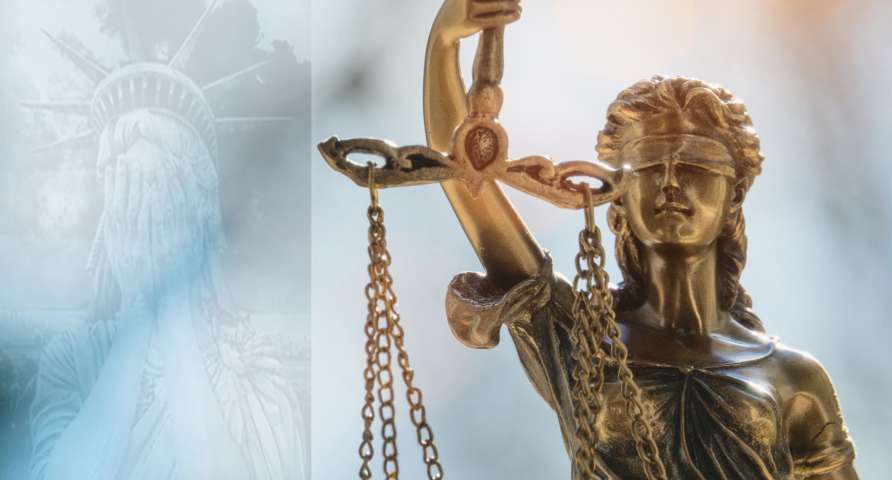The first trial of a January 6 defendant is set to begin next week. But jury trials should expose the government’s weak case against most of them.
Guy Reffitt has been in jail since he was arrested by the FBI nearly 14 months ago.
Reffitt, like dozens of Americans who protested the unlawful election of Joe Biden, isn’t in jail because he was convicted of a crime. Neither is Reffitt in jail because he has a criminal record—he does not—or a history of threatening his Bonham, Texas neighbors or community.
Instead, Reffitt has languished behind bars for more than a year because Joe Biden’s Justice Department asked a federal judge to keep him detained awaiting trial for his participation in the Capitol protest on January 6, 2021. Since then, more than 100 Americans, including several accused of no violent crimes, have been incarcerated under pre-trial detention orders sought by Attorney General Merrick Garland.
Constitutional rights such as the presumption of innocence, due process, the right to a speedy trial, and protection from cruel and unusual punishment have been stripped from January 6 defendants based on the Biden regime’s false premise that they are all “domestic terrorists” and “insurrectionists.” (None of the January 6 defendants has been charged with terrorism or insurrection.)
Now that the first trials are finally getting underway, the public can assess whether the government prosecutors and federal judges who created America’s first class of political prisoners were justified in doing so, or were shamefully complicit in Joe Biden’s vengeful prosecution of Donald Trump supporters.
Guy Reffitt is one of hundreds of protesters not charged with committing a violent crime on January 6. According to his initial indictment, Reffitt did not assault police officers—to the contrary, he was attacked by law enforcement with rubber bullets and mace—or vandalize any public property. In fact, he never even entered the Capitol building.
But based on the government’s mostly hearsay evidence, a D.C. federal magistrate last year denied Reffitt’s release—and it had little to do with his alleged criminal behavior on January 6.
“[The] gravity of the offense is not captured by the offenses because it was an attack upon the democracy and the lawful administration of that democracy as there was a transition of power,” Judge Zia Faruqui said during an April detention hearing. “My concern is that he still harbors the belief even after the election results were certified, the Electoral College was processed, that he continued to harbor the belief, the false belief that something untoward was happening with the democratic process.”
Judge Dabny Friedrich, a judge appointed to the D.C. District Court by President Trump in 2017, upheld Faruqui’s ruling last May; Reffitt has remained in a fetid D.C. jail specifically set aside for January 6 defendants ever since.
In January, amid new COVID-related lockdowns that forced Reffitt and at least 35 other January 6 defendants to remain in their D.C. cells for 22 hours a day, his defense lawyer once again asked Friedrich to release his client under strict supervision, particularly since the court continued to delay trial dates and close the courthouse needed for jury trials. To keep Reffitt incarcerated, his lawyer argued, violated his...



























